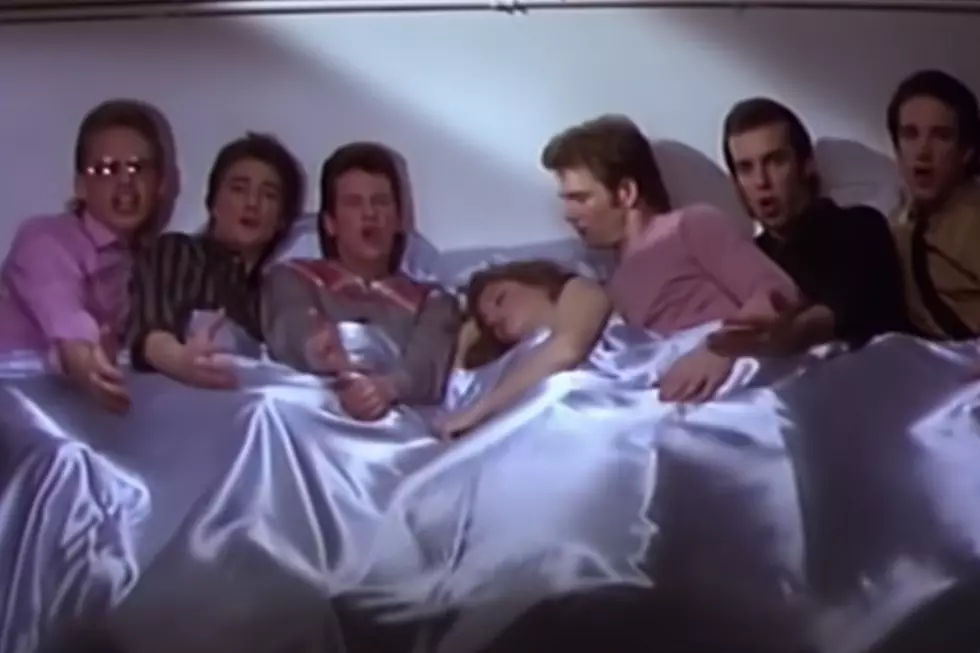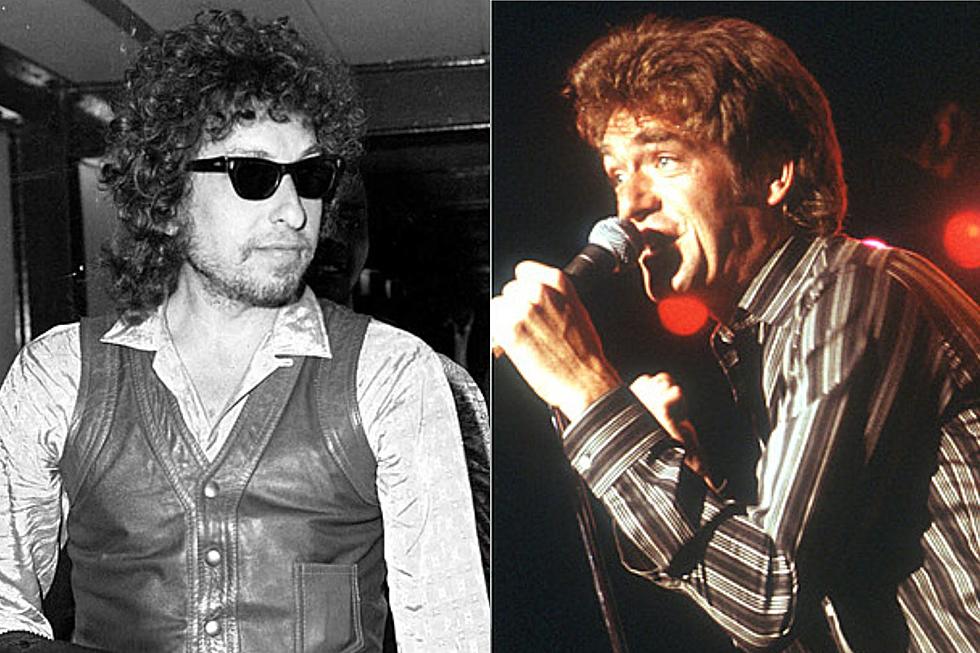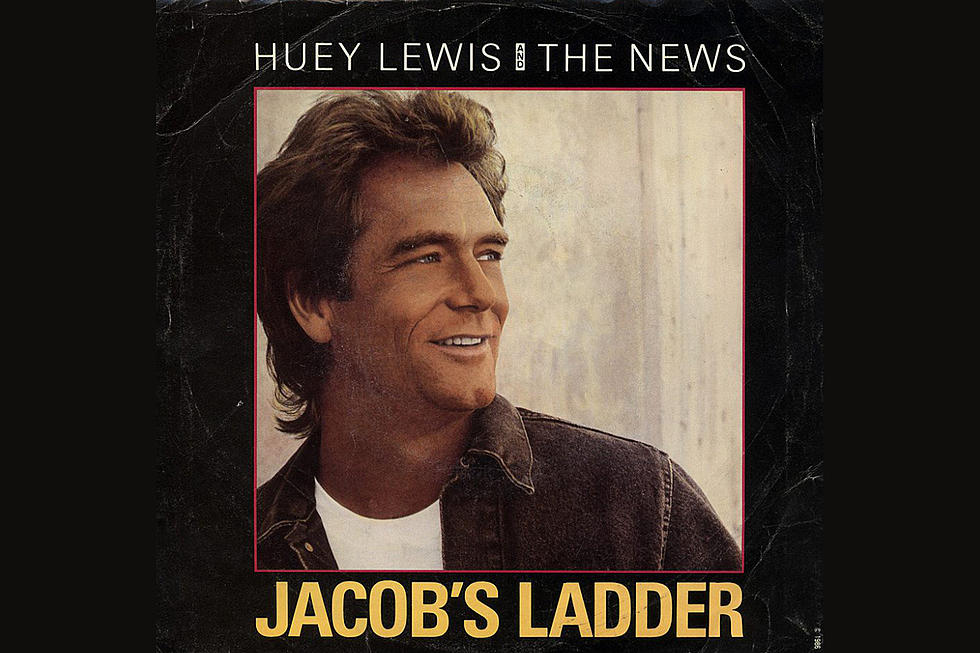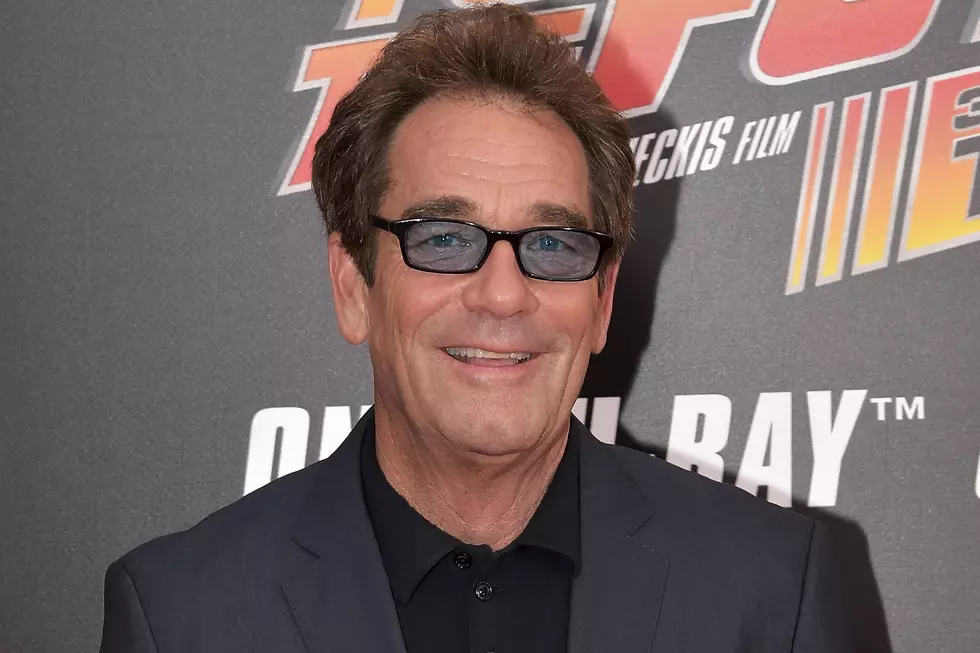
How Mutt Lange Helped Huey Lewis Land His First Hit Single
After their 1980 debut failed to turn many heads, Huey Lewis and the News needed a hit, plain and simple. Luckily, the harmonica-toting vocalist had an ace in his back pocket that paid off. He reached out to an old friend, Robert John “Mutt” Lange, to see if he might have a song to offer up. The future Top 10 hit “Do You Believe in Love” would eventually be the result.
The South African producer and songwriter had produced two albums for Clover, the ‘70s band where Lewis and several future members of the News cut their musical teeth. While he was not yet the mega-success we know today, Lange was writing the significant chapters to tell the story.
He had logged three albums in a row with AC/DC while also working on Foreigner’s 4 and Def Leppard’s High ‘n’ Dry. Having stayed friends with Lewis post-Clover, he sent over a song, “We Both Believe in Love,” which he had written in the late ‘70s but not recorded.
According to Lewis, the song didn’t require a lot of work to make sense for the band. “I rewrote it a little bit,” he tells UCR during a Zoom conversation.
While some might have expected Lange to also oversee the track, Lewis and the band were already self-producing the sessions that became their second album, 1982’s Picture This.
“You know, Mutt and I are pals, but we have sort of different philosophies of making records, to be honest,” Lewis explains. “He’s a perfectionist, you know -- he really is a perfectionist and I’m anything but. I can be shamed into re-cutting stuff, but I like little mistakes and stuff.”
“I don’t mind them -- it doesn’t bother me. I like the feel of the whole thing,” he continues. “I’m not saying that I like it shoddy or out of tune -- I like it in tune and all of that, but I like a certain [looseness]. The thing doesn’t have to be in the pocket rhythmically necessarily or [with] a lead vocal sometimes.”
“Do You Believe in Love” came to life at a point late in the album sessions when the band was almost finished recording, yet there was a nagging feeling that they still didn’t have the huge hit single they needed.
There certainly wasn’t a lack of material to draw on. “We were writing quite a lot. We threw away a bunch, you know, in those days,” he says now. “It’s funny how the first three records, it’s so easy to write and then it just gets harder and harder and harder.”
Album highlights that would eventually get radio play include the blue collar salute “Workin’ For a Livin’,” the breezy album opener “Change of Heart” (which drew inspiration from Diana Ross and the Supremes) and the soulfully retro “Hope You Love Me Like You Say You Do.”
“Do You Believe in Love” traded on that same blue-eyed soul throwback feeling, with the compressed sounds of the musical intro harkening back to the old days of AM radio.
Blessed with an earworm of a chorus, even now, it’s a song that will lodge itself in your subconscious for a good while after you hear it.
Emerging in the MTV era, it was paired with a video that to this day, Lewis has not warmed up to. “It was the worst thing I’d ever seen,” he laughs. “We’re in bed with the girl -- what, seven guys in the bed with the girl?”
“As the lead singer, I’m wandering through the frame, left to right and singing off to the outsides,” he recalls. “This is the weirdest thing ever. “I just thought, ‘Oh, this is terrible.’”
Watch 'Do You Believe in Love' by Huey Lewis and the News
Terrible or not, the combined MTV and radio airplay drove “Do You Believe in Love” all of the way to No. 7 on the Billboard Hot 100 and Picture This went Top 10 similarly on the album charts. Effectively, whether they knew it or not, they were setting the stage quite nicely for the future worldwide success of their next act, 1983’s Sports.
But let's go back to "Do You Believe in Love" for a second, as Lewis leaves us with an Easter egg to listen for. "We cut it organically without a click track and it was fine," he says. "Except that the second verse actually slows down just this much.
“Wouldn’t you know, Mutt Lange [heard that]. You know, I was wild and wooly in those days,” he admits. “I said, ‘Mutt, don’t worry about it. It’s going to be a hit anyway.’ Of course, Bob Clearmountain mixed it and he could mix most things and turn them into hits, I think. Fortunately, it was a hit record.”
Top 100 '80s Rock Albums
More From Ultimate Classic Rock









